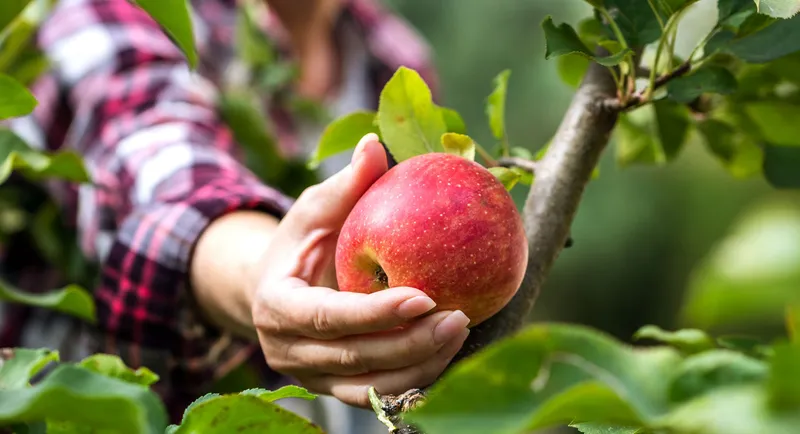Horticulture helped me battle depression and gave me hope to live
This week in Survivor Series, we share the story of Poonam Gaur from Uttarakhand who was able to progress in life with the help of agriculture.
I am Poonam Gaur, a farmer from Sunali village in Purola, Uttarakhand. My family means everything to me. We are a family of seven, consisting of my two sons, two daughters in law, and two grandchildren.
In 2018, my husband passed due to cancer, which devastated me. Within a year of my husband’s passing, I lost my mother too. And at the time, I slid into depression.
I had lost the will and purpose to live, even more so as our family’s financial condition was deteriorating and I was helpless. It was hard for me to find the motivation to do anything.

Representational picture
[Survivor Series] Health education not only helped me, but my coworkers, family, and neighbours
It was getting tougher for us to sustain by the day, and I could not see any solution or sustainable source of income in sight. I was only earning Rs 2000-3000 per month through traditional farming methods, which wasn't nearly enough to support myself or my family.
However, after my husband’s demise, my sons and daughters-in-law were extremely supportive and took care of me as best as they could. They motivated me to keep going and live an independent life.
Coca-Cola India's Apple Unnati initiative arrived as a ray of hope in my life in 2020 when my children introduced me to it. My sons were the ones who pushed me to join Coca-Cola India’s Apple Unnati initiative and start a new life.
I wanted to provide for my family, take care of their needs, and support them in whatever way I could. It seemed like a viable source of income with minimal investment and something I could own and run myself, which was empowering for me.
I have been a part of Coca-Cola India and Indo-Dutch Horticulture sustainable agriculture initiative —Project Apple Unnati, for three years now. Prior to being introduced to advanced horticulture farming through the project, my family and I used traditional farming practices to grow crops like wheat, rice, peas, and potatoes amongst others.
The traditional framing methods meant long, tedious hours of hard work without a satisfactory yield. My yearly income was not sufficient, and I struggled to feed my family for the rest of the year when there was no harvesting.
As I began working with Coca-Cola India’s Project Unnati, it completely changed the course of my life. I started apple farming through Ultra High Density Plantation technologies, and volunteers working for the initiative guided me through the process. I started enjoying farming, and with the technology and practices Coca-Cola India taught us, I got good yields with less effort. It helped me generate substantial income for my family, and allowed us to lead healthy and happy lives.
With the yields, I am able to earn approximately Rs. 25,000-30,000 each month.
Within 6-8 months, I was able to grow high-quality apple fruit that exponentially increased my income and enhanced my livelihood multifold. I was able to earn Rs. 2.5 lakh per year from the first product.
Being a part of Apple Unnati has been life changing for me. From being hopeless and depressed, today I am extremely happy and content. From being worried about provision for the next meal for my family, today I feel proud that I am being able to provide them with a comfortable and prosperous life.
In our region, the adoption of Good Agricultural Practices (GAPs) in apple farming has led to a 5X increase in productivity, making me extremely passionate about growing apples and nurturing my apple orchard. I truly enjoy apple farming and I also proactively educate and encourage my fellow farmers to become Apple Unnati farmers and consider dropping traditional farming methods.
People from nearby villages often come to visit me, to learn about new farming techniques as part of Coca-Cola India’s Apple Unnati initiative. Moving forward, I envision myself becoming a village-level trainer for Indo-Dutch, and contributing to the lives of other women farmers around me.
As part of the ‘Atmanirbhar Bharat’ vision, I would like to continue to play a role in helping build an ‘Atmanirbhar Sunali’ (my village).
Edited by Affirunisa Kankudti






